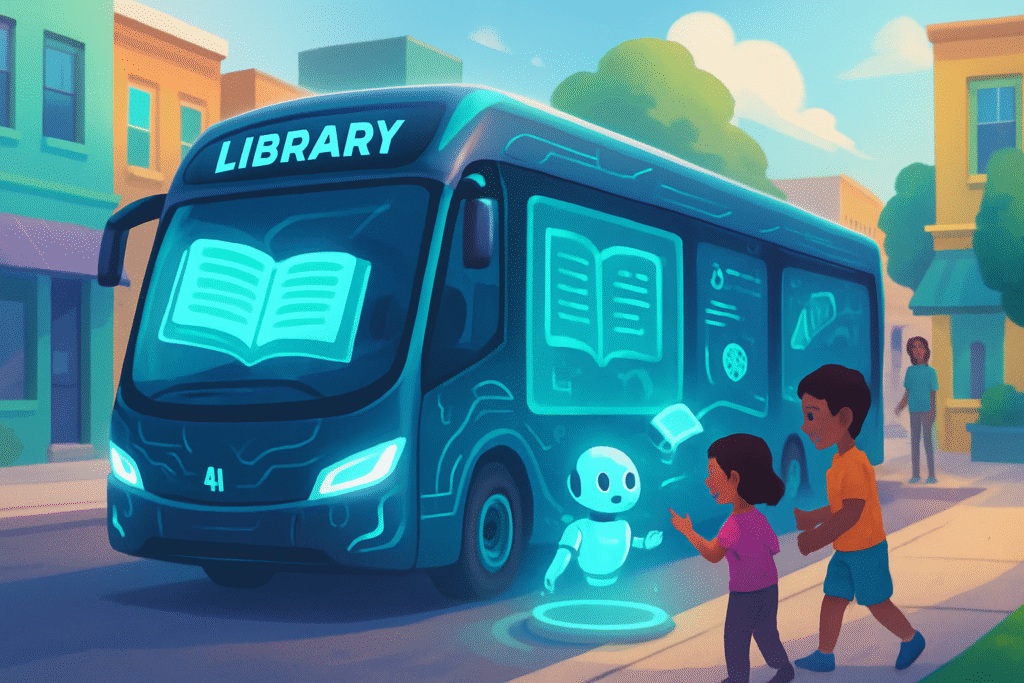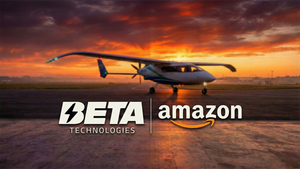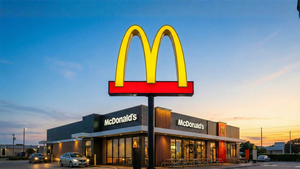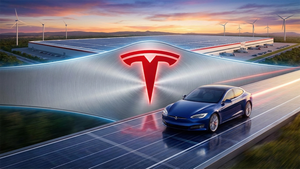
In a pioneering move to redefine community access to knowledge and technology, the Santa Clarita Public Library launched its "Library Express" initiative on April 26, 2025. This innovative mobile library, a transformed "Go! Santa Clarita" bus, acts as a dynamic "library without walls," bringing a treasure trove of books, educational programs, and cutting-edge mobile technology directly to neighborhoods throughout the city. The initiative underscores a growing trend in public services: leveraging mobility and digital tools to enhance equitable access and foster community engagement, ensuring that vital resources are within reach for all residents, regardless of their proximity to a physical branch.
The Library Express represents a significant leap forward in community outreach, aiming to dismantle barriers to literacy and digital inclusion. Its debut, celebrated with much fanfare at the Día de los Niños/Día de los Libros event, marked the beginning of a new era for Santa Clarita's educational landscape. By bringing the library experience directly to parks, schools, senior centers, and local events, the program actively promotes lifelong learning and creativity, fulfilling a crucial role in the city's broader SC2025 Strategic Plan to build a more connected and informed populace.
Mobile Innovation: A Library Reimagined for the Digital Age
At the heart of the Library Express's success is its robust integration of mobile technology, transforming a conventional bus into a vibrant hub of learning and discovery. The unit is meticulously outfitted with shelves brimming with popular titles, alongside advanced digital infrastructure. Patrons can enjoy seamless onboard check-out capabilities, much like a traditional branch, but with the added convenience of mobility. Crucially, the Library Express functions as a mobile hotspot, offering free Wi-Fi access, a vital resource for bridging the digital divide in underserved areas.
Beyond connectivity, the mobile library boasts a suite of computing resources, including laptops, tablets, and dedicated computer stations, enabling residents to engage with digital content, complete schoolwork, or access online services. An external large mounted monitor further extends its reach, facilitating technology demonstrations, interactive presentations, and showcasing the library's diverse offerings to larger groups. For younger learners, the initiative incorporates interactive robots, providing hands-on learning experiences in foundational coding skills and STEM concepts, making complex subjects accessible and engaging. This comprehensive mobile setup starkly contrasts with traditional static library models, which often face geographical limitations in serving diverse communities. The Library Express's agile approach allows for dynamic scheduling and targeted outreach, ensuring that resources reach those who need them most, rather than expecting residents to travel to a fixed location.
Implications for the AI and Tech Ecosystem
While the Santa Clarita Public Library's Library Express initiative is primarily a public service endeavor, its successful deployment of mobile technology carries interesting implications for various segments of the tech industry, particularly companies involved in mobile infrastructure, educational technology, and potentially even logistics AI. Companies specializing in robust mobile networking solutions, such as those providing 5G hardware or advanced Wi-Fi solutions, stand to benefit as similar initiatives gain traction nationwide. The demand for reliable, high-speed mobile connectivity in non-traditional settings creates new market opportunities for network providers and equipment manufacturers.
Furthermore, educational technology (EdTech) companies that develop interactive learning tools, digital content platforms, and STEM educational kits, particularly those designed for mobile or outreach environments, could find new avenues for collaboration and product deployment. The use of robots for coding education within the Library Express highlights a growing market for accessible, hands-on learning technologies. While major AI labs like Alphabet's (NASDAQ: GOOGL) DeepMind or Microsoft's (NASDAQ: MSFT) AI research might not directly benefit from a single mobile library, the broader trend of democratizing access to technology and education aligns with their long-term goals of societal impact and fostering a digitally literate population. Startups focusing on mobile-first educational applications, content delivery, and community engagement platforms could find a fertile ground for piloting and scaling their solutions in similar public service initiatives. The logistical challenges of operating a mobile library could also present opportunities for AI-powered route optimization and resource allocation software, improving efficiency and reach for such services.
A Wider Lens: Democratizing Access in the AI Age
The Library Express initiative fits seamlessly into the broader landscape of technology trends focused on democratizing access and bridging societal divides. In an era increasingly defined by artificial intelligence and digital literacy, ensuring that all community members have foundational access to technology and information is paramount. This mobile library acts as a critical node in fostering digital equity, directly addressing the challenge of limited access to computers, internet, and educational resources that many communities, particularly those in lower-income or geographically isolated areas, still face.
The program's focus on providing free Wi-Fi, computer access, and STEM education, including robotics, is particularly significant. As AI continues to reshape industries and job markets, early exposure to computational thinking and digital tools becomes essential for future readiness. The Library Express is not just distributing books; it's cultivating the next generation of digitally literate citizens. This initiative echoes previous milestones in public access to technology, such as the widespread establishment of public computer labs in the early internet era. However, by taking these resources directly to the people, it represents an evolution, actively removing barriers of transportation and awareness. Potential concerns, however, include the sustainability of funding for such mobile operations, the maintenance of technology, and ensuring the curriculum remains current with rapidly evolving technological advancements. Nevertheless, the proactive approach of the Santa Clarita Public Library serves as a compelling model for other communities striving to harness technology for inclusive growth.
The Road Ahead: Expanding Reach and Evolving Services
Looking ahead, the Library Express initiative is poised for continued growth and evolution. Near-term developments are likely to focus on expanding its service routes, reaching an even broader spectrum of neighborhoods and community events. As the program matures, there's potential for enhanced data analytics to optimize scheduling and resource allocation, ensuring maximum impact. Experts predict a continued integration of emerging technologies, perhaps incorporating more advanced augmented reality (AR) or virtual reality (VR) experiences to further engage patrons, particularly in educational programming.
Potential applications on the horizon could include partnerships with local businesses or non-profits to offer specialized workshops, or even serving as an emergency hub during community crises, leveraging its mobile connectivity and resources. Challenges that need to be addressed include securing long-term funding, continually updating the mobile technology to keep pace with rapid advancements, and training staff to manage an increasingly diverse array of digital tools and educational content. However, the initial success of the Library Express suggests a strong foundation for overcoming these hurdles. Experts envision similar mobile technology initiatives becoming a standard feature of public services, with libraries leading the charge in creating dynamic, accessible learning environments that adapt to the changing needs of their communities. The model set by Santa Clarita could inspire a wave of similar innovations across the nation.
A Blueprint for Community Engagement in the Digital Age
The Santa Clarita Public Library's Library Express stands as a testament to the transformative power of mobile technology in public service. Launched in April 2025, this "library without walls" has successfully brought books, digital literacy, and imaginative learning directly to the doorsteps of residents, effectively bridging geographical and digital divides within the community. Its innovative use of a repurposed bus, equipped with Wi-Fi, computers, and interactive STEM tools like robots, offers a compelling blueprint for how libraries can remain vital and relevant institutions in an increasingly digital and AI-driven world.
The initiative's significance lies not just in its immediate impact on Santa Clarita residents but also in its potential to inspire similar programs nationwide. It highlights a critical shift towards proactive community engagement, demonstrating that access to knowledge and technology should not be a privilege but a fundamental right, delivered directly to where people live, work, and play. As we move forward, the Library Express will be a key project to watch, offering insights into the long-term benefits of mobile educational outreach, the challenges of sustaining such initiatives, and the evolving role of public libraries as essential pillars of community development and digital inclusion. Its ongoing success will undoubtedly shape discussions around equitable access to information and technology for years to come.
This content is intended for informational purposes only and represents analysis of current AI developments.
TokenRing AI delivers enterprise-grade solutions for multi-agent AI workflow orchestration, AI-powered development tools, and seamless remote collaboration platforms.
For more information, visit https://www.tokenring.ai/.





